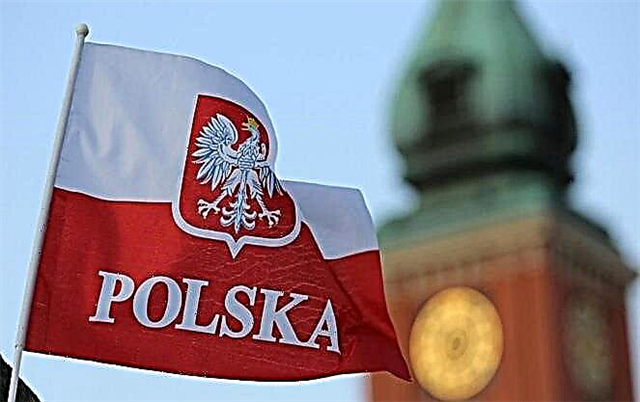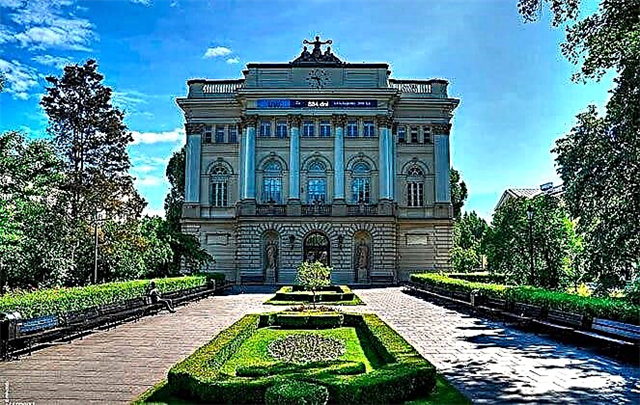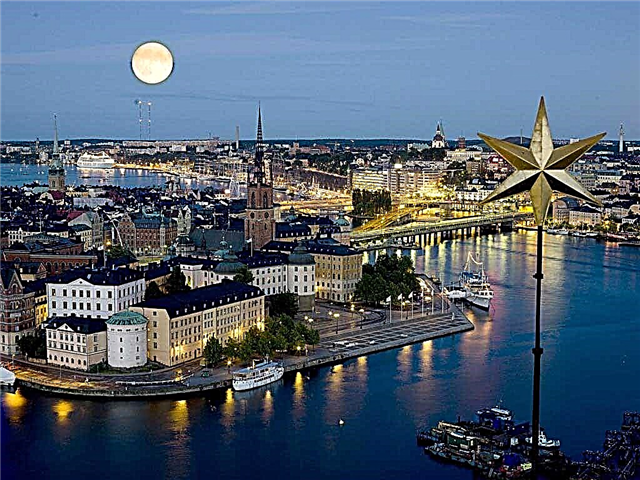The German Constitution sacredly honors and in every possible way protects the institution of the family, even when it comes to foreign citizens. Therefore, family reunification in Germany is one of the strong reasons for immigration in 2021. However, the presence of consanguinity and family ties is far from the only condition. Residence permit applicants must meet the requirements for language skills, livelihoods and adequate housing. These requirements are relevant even if the inviting party is citizens of Germany.

Family reunification and conditions for its implementation
Family reunification (Familie Zusammen Fuehrung) in Germany is one of the most popular legal grounds for a foreigner to move to Germany and obtain a residence permit here without any particular difficulties. The main condition for this is the presence of a family member in Germany.
Moreover, it is not at all necessary that he be a citizen of the Federal Republic of Germany. It can be a foreigner from outside the EU who has a permanent residence permit (settlement permit, Niederlassungserlaubnis) or Mobiler-ICT-Karte - EU Blue Card. However, if the family member is German, it is usually easier for his relatives to move to the Federal Republic of Germany.
 The conditions for the application of this basis are described in Section 6 of the Aufenthaltsgesetz of 30.07.2004 (Law on Residence, Employment and Integration of Foreigners, AufenthG).
The conditions for the application of this basis are described in Section 6 of the Aufenthaltsgesetz of 30.07.2004 (Law on Residence, Employment and Integration of Foreigners, AufenthG).
According to them, family reunification gives the right to a residence permit in Germany to the following categories of applicants:
- the spouse of a resident of the Federal Republic of Germany, provided that the marriage was entered into without coercion and not for the purpose of further family reunification and the transfer of a foreigner to federal territory (paragraph 1a §27 AufenthG). At the same time, according to §30 AufenthG, both spouses must be of legal age, in addition, a foreigner who applies for a residence permit must prove fluency in German. The right to reside and extend the residence permit is maintained as long as the spouses continue to live together. To obtain an independent residence permit, reunification with a husband in Germany and cohabitation must last at least 3 years;
- minors, unmarried children of a resident of the Federal Republic of Germany. If the child has reached the age of 16, he will have to prove knowledge of the German language and the ability to integrate into German society on the basis of his existing education or living conditions;
- parents of a minor, unmarried child living in the Federal Republic of Germany. At the same time, the need for family reunification should be conditioned by the implementation of care, which means that such a parent who wants to move to Germany must retain guardianship rights;
- Other family members of the foreigner. In accordance with clause 2 §36 AufenthG, other family members can apply for a residence permit only if it is necessary in order to avoid extraordinary difficulties. For example, to care for a disabled relative.
But these are not all conditions.
Reunification with a spouse in Germany, as with any other family member, is possible, provided that there is enough living space for them (that is, the inviting party has sufficient living space) and the necessary funds are available to support relatives.
But even if all these conditions are met, the right to familie zusammen fuehrung is not absolute and depends on the decision of the Federal Office for Foreigners and Migration.
How to apply for a visa for family reunification in Germany
 It doesn't matter where the foreigners plan to move to Germany from. It can be Russia, Kazakhstan or even a visa-free Ukraine (visa-free for Ukrainians is valid only in the case of short-term tourist trips to the states of the Schengen zone) - for a long-term stay in Germany, a national visa is required. In the future, if all the conditions are met, it will be converted into a residence permit for a family member.
It doesn't matter where the foreigners plan to move to Germany from. It can be Russia, Kazakhstan or even a visa-free Ukraine (visa-free for Ukrainians is valid only in the case of short-term tourist trips to the states of the Schengen zone) - for a long-term stay in Germany, a national visa is required. In the future, if all the conditions are met, it will be converted into a residence permit for a family member.
A family reunification visa is requested by a foreigner at the German consulate or other diplomatic mission in the country of origin, after which:
- The diplomatic missions accept the applicant's documents and submit them to the Bundesamt für Migration und Flüchtlinge (BAMF, Office for Foreigners in the Federal Republic of Germany).
- BAMF checks the documents, examines the circumstances described in them, including the availability of the receiving party of appropriate conditions for the accommodation and maintenance of the family, after which it sends its conclusion to the German mission abroad.
- On the basis of the received opinion, the diplomatic mission decides on the issuance of a national visa.
Before submitting documents, you should make an appointment at the embassy, since documents are accepted only by appointment.
Addresses and other contact details can be obtained on the website of the German Representative Office in Russia.
The German national visa is issued to foreigners on the basis of the following documents:
- 2 applications for a national visa (Antrag auf Erteilung eines nationalen Visums), completed in German (see the application form here);
- 2 signed clarifications on the possibility and reasons for expulsion from the country, the consequences of providing false information, etc .;
- 3 photos measuring 35 x 45 mm, 2 of which are glued to the antrag (application);
- international passports + 2 copies of pages with personal information;
- civil passport + 2 copies of pages with personal information, a mark about the place of registration and marital status;
- a residence permit in the country in which the application is submitted (if it does not take place in the country of nationality);
- 2 copies of a passport or other identity document of the receiving party in Germany, + 2 copies of a fresh (not older than 6 months) certificate of residence (Meldebescheinigung) + 2 copies of a residence permit, if the inviting party is a foreigner;
- a written, hand-signed invitation of the host party in free form with a statement that family members will live together, while the host party bears the cost of their maintenance. A sample invitation for family reunification in Germany can be seen below:
- original and 2 copies of a document on proficiency in German (depending on the category of a family member, the level of knowledge of the language may differ);
- health insurance policy;
- other documents - depending on the category of the foreigner.
Each package of documents must be supplemented with a "Checklist of documents". This is a kind of inventory of the papers that are contained in the package. Therefore, the contents of the package will differ for different categories of applicants. The checklist must be submitted along with the package of documents, and all papers must be folded in the order in which they are indicated in the list.
If the set is incomplete or the documents are not folded in the specified order, the submitted papers are not processed.
It should be borne in mind that:
- any documents on civil status, if they are not issued on the territory and not in the state authorities of Germany, must be apostilled. Apostille is placed on originals;
- documents written in Russian or another language must be translated into German by a translator accredited at the embassy. The apostille must also be translated. Translation of passports and insurance is not required;
- originals and translations are submitted by the applicant with at least two copies.
The above is only a general package of documents. Additional documents may be required depending on the situation. Let's consider the most common cases.
Marriage visa
If a marriage with a German resident has not yet been concluded, family reunification is not possible.However, the bride / groom can obtain a marriage visa for the purpose of subsequent residence. After marriage, you can apply for an Aufenthaltserlaubnis (temporary residence permit) as a spouse.
At the same time, the German embassy draws attention to the fact that obtaining a visa is the last step before leaving for Germany as a bride / groom. That is, all the procedures required by law for a marriage must be carried out in advance.
Simply put, an application to the German registry office (Standesamt) must be submitted in advance. In addition, future spouses need to go through a personal interview with the administration, and the fact of the planned marriage registration must be confirmed by a corresponding certificate issued by Standesamt.
At the time the visa is issued, the specific date of the marriage must have already been determined.
In order to obtain a visa for marriage, in addition to the above mandatory documents, the applicant will need:
- original + 2 copies of a certificate from Standesamt, confirming the existence of the prerequisites for marriage, or confirming the filing of an application for marriage;
- a certificate of the possibility of getting married in accordance with Russian (Ukrainian, Kazakh, Belarusian) legislation, issued by the Russian registry office;
- if there were past marriages, divorce certificate, death certificate of the ex-spouse, certificates of former marriages and other documents on acts of civil status;
- language certificate confirming knowledge of the language at a level not lower than A1. Find out more about language requirements and how to prove your language proficiency in the BAMF Information Brochure.
All details regarding the package of documents can be specified here.
Spouse reunification visa
If the marriage has already been concluded, the husband or wife of a permanent resident of Germany can obtain a spouse's visa at the consulate. In addition to the general package of documents, the applicant will need:
- original + 2 copies of a marriage certificate with a translation into German, if the marriage was not concluded in Germany (samples of Russian and German certificates can be found below);

- if there were past marriages, divorce certificate, death certificate of the ex-spouse, certificates of former marriages and other documents on acts of civil status;
- in the case of a joint move with a spouse - a lease agreement, an agreement on the ownership of housing or another document indicating the future address of residence;
- language certificate confirming knowledge of the language at a level not lower than A1. Find out more about language requirements and how to prove your language proficiency in the BAMF Information Brochure.
Visa for reunification with a minor child
To obtain a national visa for a child, the documents for family reunification in Germany are submitted by the parents. In this case, the visa application must be personally signed by all persons who have parental rights. If this is not possible, the parent who cannot put his own handwritten signature must declare in writing his consent for the child to receive a visa.
In addition to the general list of documents, the following must be submitted:
- birth certificate of the child, which indicates paternity / maternity, translated into German + 2 copies;
- if the child is 14 years old, original + 2 copies of a civil passport;
- if the parent with whom the child is reunited has sole parental rights - a court decision to deprive the other parent of parental rights + translation and 2 copies;
- if the child is reunited with only one of the parents - the notarized consent of the second parent to leave the child for permanent residence + translation and 2 copies + a copy of the civil passport;
- if the child has reached the age of 16 - a certificate of knowledge of the German language at the C1 level or documents confirming the ability to integrate into the social conditions of the Federal Republic of Germany on the basis of existing education or past living conditions.
Parent visa
Parents of German residents, like other family members, can also obtain a visa for reunification. Let us recall that for this, exceptional circumstances of such a necessity must exist and must be proved.
Therefore, among other documents, when applying for a visa, the following must also be submitted:
- birth certificate or other document confirming family ties;
- other documents on acts of civil status, for example, certificate of name change, certificate of adoption, court decisions, etc .;
- a free-form letter detailing the circumstances that require a parent or other family member to move to Germany;
- documents confirming the circumstances described in the letter - for example, doctor's certificates, certificates from social security agencies, nursing homes, etc., + 2 translations and 2 copies.

It should be borne in mind that such persons will be eligible for family reunification only if this helps to avoid circumstances of particular severity; that is, on the condition that vital assistance from a family member living in Germany can only be obtained on the territory of the Federal Republic of Germany.
Economic and social factors in the country of residence are not such grounds - only serious illness, severe mental disorders, the need for constant care, etc. are taken into account. embassy.
Exceptional cases
According to §36 AufenthG, §26 Asylgesetz (Asylum Act, AsylG), family members of persons recognized as refugees and asylum seekers by Germany can also apply for reunification. However, they can only exercise this right if they submit an application to the embassy within three months from the date a family member receives refugee status.
The categories of persons who can apply for reunification are the same (except for persons planning to marry - at the time of the asylum application, the marriage must have already been concluded). However, they are subject to simplified requirements compared to the usual procedure for family reunification:
- the applicants are not required to speak German;
- the receiving party does not have to prove that there is sufficient income to support family members who have arrived in Germany;
- there is no obligation to prove that there is sufficient living space in Germany to accommodate the arriving relatives.
However, there are some limitations.
From 01.08. 2021 a quota principle is applied to persons applying for family reunification with refugees: no more than 1,000 people per month can obtain national visas for humanitarian reasons. So, by the end of 2021, 5 thousand quotas have been allocated.
The costs of preparing documents, moving and other expenses are borne by the applicants.
The right to reunification will be denied if:
- the applicant was sentenced to a prison term of at least 1 year or was charged with other crimes against life and health, sexual integrity related to drug trafficking and other crimes;
- before the refugee left the country, the marriage with the applicant had not yet been concluded (for spouses);
- in relation to a refugee, the issue of deprivation of humanitarian status or registration of a residence permit for him is being considered, or its extension is not expected;
- the refugee with whom it is planned to reunite has applied for a border crossing permit.
Problems Applicants May Face
In theory, the requirements for family reunification immigration are fairly straightforward. In practice, everything is more complicated - applicants often face a number of problems, which are usually associated with:
- with proof of knowledge of the language at the required level. It is not enough just to provide a certificate of knowledge. When submitting an application and documents, the embassy staff communicates individually with each of the applicants in German.If they doubt the level of knowledge, the visa will be refused;
- with the income of the receiving party. A resident of Germany will not only have to undertake the obligation to support family members, but also to prove the existence of such an opportunity. The amount of income required will depend on the number of moving relatives. A single amount of the minimum required income has not been established, but it is assumed that, in addition to general expenses, the receiving party will additionally need at least 500 euros per family member per month;
- with the size of the housing. It is believed that 1 family member should have at least 12-15 m2 of living space;
- with proof of the validity of the marriage. BAMF checks applicants and citizens residing in Germany. If it turns out that the marriage was concluded without the purpose of creating a family (fictitious marriage), the visa will be canceled, and the residence permit will be refused.
Finally
Family reunification is perhaps the most convenient tool for immigration to Germany. The easiest way to move on this basis is for spouses (including future ones), as well as for the children of a person with permanent residence in the Federal Republic of Germany.
In addition to them, other family members have the right to apply for reunification, but for them this is possible only under exceptional circumstances. In any case, the host is obliged to cover the costs of supporting all family members and provide them with a place of residence, and the applicants must prove their German language skills at the proper level. But these rules do not apply to families that are reunited with refugees.












